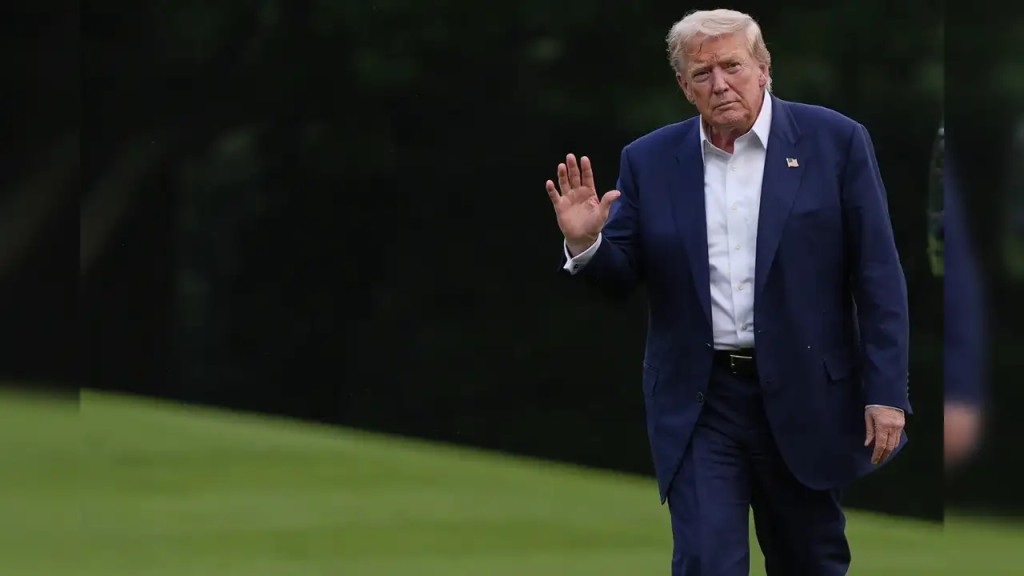India Refutes Trump’s Claim on Halting Russian Oil Imports: MEA Cl
News THE ECONOMIC TIMES, livelaw.in, LAW, LAWYERS NEAR ME, LAWYERS NEAR BY ME, LIVE LAW, THE TIMES OF INDIA, HINDUSTAN TIMES, the indian express, LIVE LAW .IN
After Donald Trump claimed India would stop buying Russian oil if he returned to office, the Ministry of External Affairs reaffirmed that New Delhi’s energy policy remains guided by national interests, not foreign pressure.
New Delhi -Friday, October 18, 2025
India has rejected former U.S. President Donald Trump’s claim that New Delhi will “stop buying Russian oil” if he returns to power, asserting that India’s energy policy is based solely on national interest and not dictated by external political rhetoric.
The Ministry of External Affairs (MEA) on Thursday responded firmly after Trump, speaking at a campaign event, suggested that India had “assured” him it would reduce crude purchases from Russia.
MEA spokesperson Randhir Jaiswal clarified that no such assurance or commitment has ever been made, emphasizing that India maintains independent, sovereign decision-making in its foreign and energy policies.
Trump’s Claim Triggers Diplomatic Response
During his campaign rally in Florida, Trump reportedly claimed that India — “under good understanding” — would stop buying Russian oil “the moment we return to office.” The remark, which was widely circulated by international media, suggested that India might shift its stance to align more closely with Western sanctions on Moscow.
The MEA, however, categorically denied any such conversation or policy alignment.
“Our oil imports are guided by our national energy requirements and global market dynamics,” said Jaiswal. “India’s oil policy is consistent, transparent, and aimed at ensuring energy security for our citizens.”
Officials stressed that India has not discussed its energy trade decisions with any foreign political candidate and that such claims were “entirely speculative.”
India’s Energy Strategy: Pragmatism Over Politics
Since Russia’s invasion of Ukraine in 2022, India has increased purchases of discounted Russian crude, arguing that affordability and supply stability are vital for its growing economy.
Despite Western sanctions on Moscow, India has balanced its diplomatic and economic interests — maintaining ties with both the United States and Russia.
India’s refiners, including Indian Oil Corporation (IOC), Bharat Petroleum (BPCL), and Hindustan Petroleum (HPCL), have imported record volumes of Urals crude at discounted prices. This has helped stabilize domestic fuel costs amid volatile global markets.
According to trade data, Russian oil now accounts for roughly 30% of India’s total crude imports, compared with less than 2% before 2022.
“Our priority is to keep fuel affordable for 1.4 billion people,” said an energy ministry official. “India will continue to diversify suppliers, but decisions will remain sovereign.”
MEA Reiterates: No External Pressure on Oil Trade
India’s MEA underlined that energy cooperation with Russia is a commercial arrangement, not a political statement. The spokesperson emphasized that India complies with international sanctions frameworks only when they are legitimate and UN-mandated, not unilaterally imposed by individual nations.
This stance mirrors earlier comments by External Affairs Minister S. Jaishankar, who has repeatedly defended India’s imports from Russia, stating that “Europe has done far more trade with Moscow than India ever has.”
“We have a moral duty to our citizens — to ensure affordable energy,” Jaishankar said in a prior address. “That’s our only guiding principle.”
Global Context: Oil Politics and Campaign Claims
Analysts say Trump’s statement should be seen through the lens of U.S. electoral politics rather than diplomatic reality. His remarks were likely aimed at showcasing foreign policy influence, especially amid rising global energy prices and renewed Western scrutiny of Russia’s oil trade networks.
Dr. C. Raja Mohan, foreign policy analyst at the Indian Institute of International Studies, commented:
“Trump’s claims are more about domestic optics than Indian policy. India’s position has been consistent — it buys oil where it’s affordable and available.”
Observers note that India’s growing clout as a swing buyer in global oil markets has strengthened its leverage with both the U.S. and Russia. By diversifying imports, India ensures stability while keeping geopolitical risks at bay.
Washington’s Measured Silence
The current U.S. administration has refrained from commenting directly on Trump’s remark. However, officials in Washington have previously acknowledged India’s unique position as a major energy consumer that cannot easily pivot away from Russian supplies overnight.
While the U.S. has encouraged “gradual diversification,” it has also avoided open criticism, recognizing India’s central role in stabilizing global energy supply chains.
India’s Broader Energy Diplomacy
Beyond Russia, India continues to engage with multiple partners — including the U.S., Saudi Arabia, the UAE, and Iraq — to secure long-term energy supplies. The country is also expanding renewable energy investments, aiming to cut fossil-fuel dependency by 2070 as part of its net-zero target.
However, officials assert that fossil fuels will remain central to India’s energy mix for the next two decades, and Russian oil remains one of the most cost-effective options in the current global environment.
Industry Reaction
Energy economists and trade experts have supported the MEA’s statement, calling it “measured and necessary.”
Dr. Vandana Hari, founder of Vanda Insights, said:
“India’s oil procurement decisions are market-driven. Speculative political remarks, especially from foreign leaders, have no bearing on its buying strategy.”
The Federation of Indian Petroleum Traders also backed the government’s stance, saying that maintaining stable oil flows from Russia is essential to shield Indian consumers from global price shocks.
Future Outlook: Continuity Over Rhetoric
Industry insiders expect India to maintain its current strategy — buying Russian crude as long as it is financially viable and compliant with international norms.
Analysts believe that regardless of U.S. political transitions, India’s stance on energy autonomy is unlikely to change. With its demand projected to rise 50% by 2030, India will prioritize diversification and affordability over external expectations.
Excerpt (for snippet use):
India’s MEA dismissed Donald Trump’s claim that New Delhi would halt Russian oil imports, reaffirming that its energy policy is driven by national interest, not external influence.
Source:
